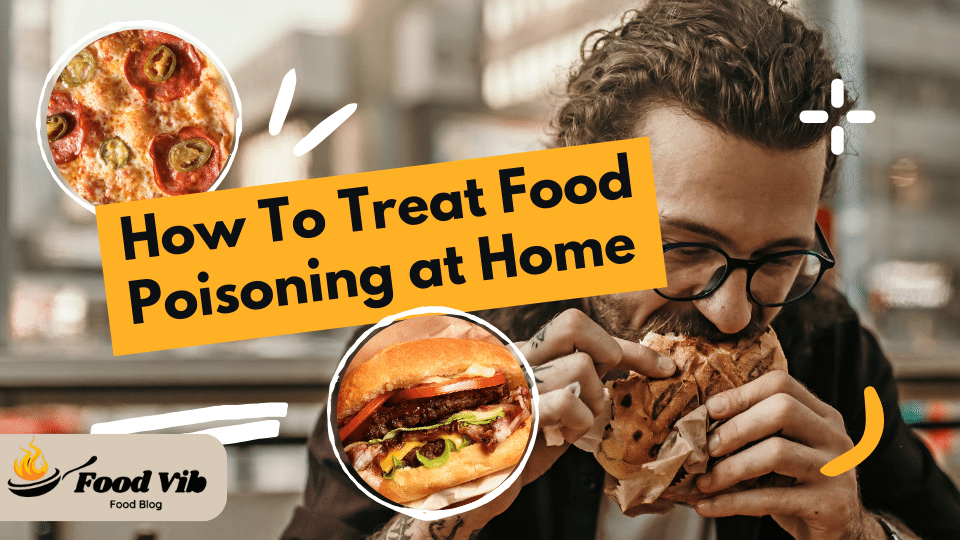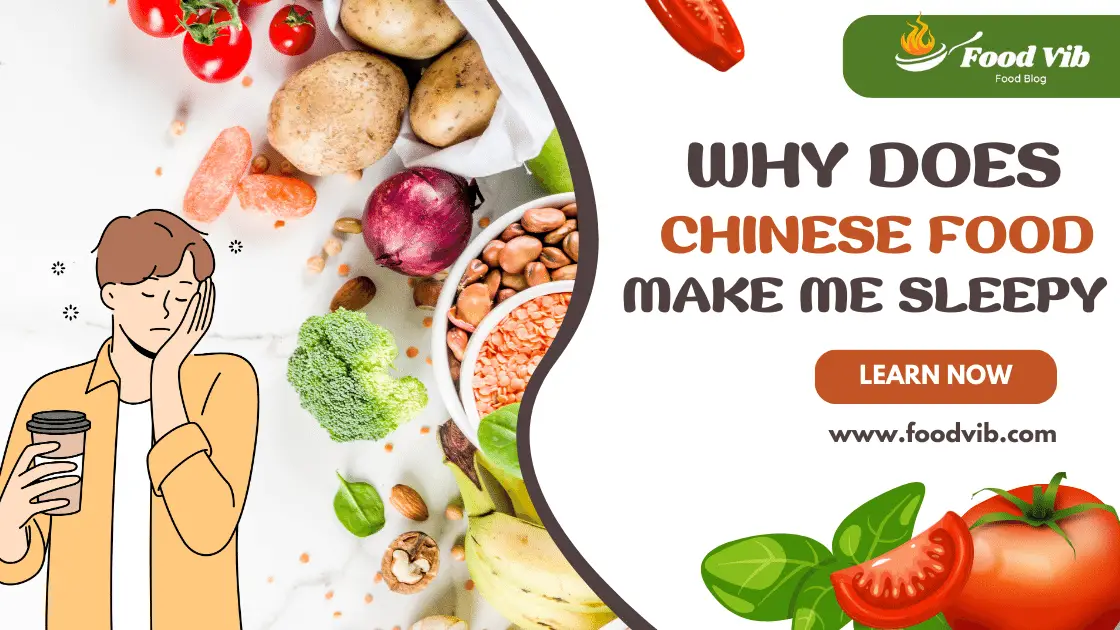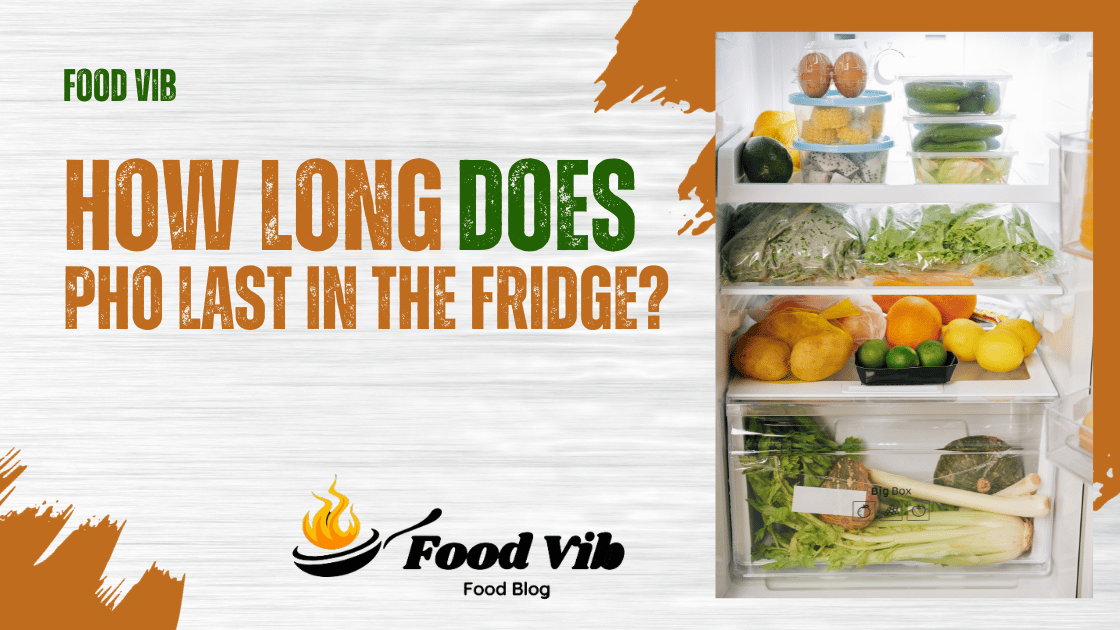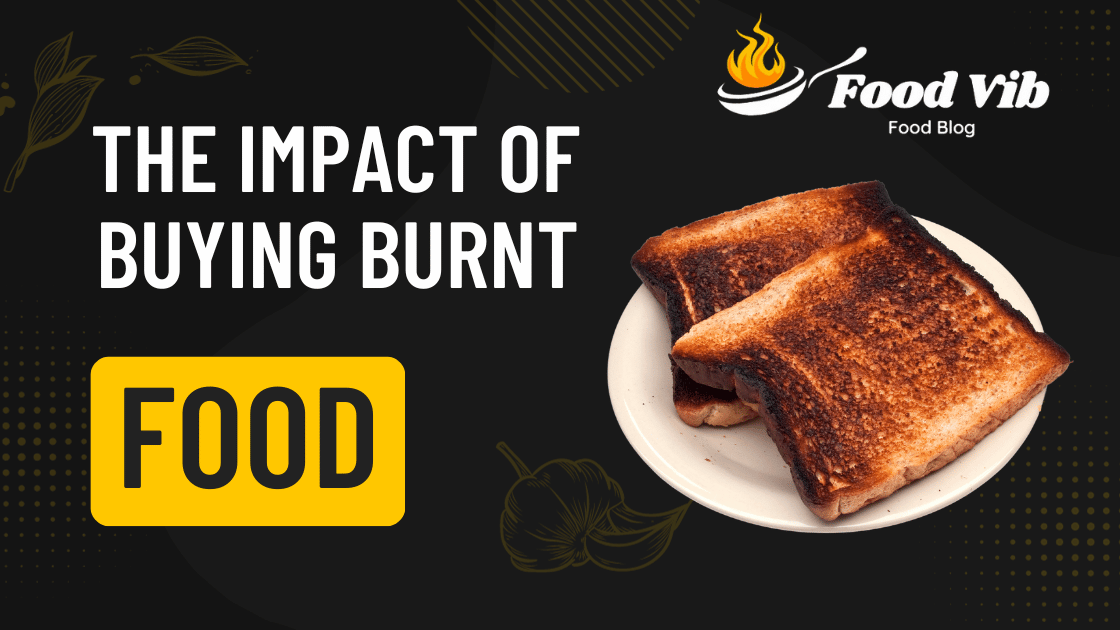How To Treat Food Poisoning at Home

Dealing with food poisoning may be difficult and stressful, but there are numerous actions you can do at home to ease symptoms and help recovery. From modifying your diet to adopting specialized treatments, home treatment options may help reduce pain and improve recovery.
However, severe instances of food poisoning may need medical treatment, so it’s crucial to monitor symptoms regularly and seek expert care if required.

How To Treat Food Poisoning at Home
Food poisoning is a frequent but uncomfortable ailment caused by ingesting contaminated food or drinks. It happens when pathogenic bacteria, viruses, parasites, or poisons contained in the meal enter your body and wreak havoc on your digestive system. Symptoms of food poisoning may include nausea, vomiting, diarrhea, stomach discomfort, fever, and weakness. While food poisoning may vary from minor discomfort to serious sickness, most instances can be easily treated at home with proper care and remedies.
1. Stay Hydrated
One of the most crucial stages in treating food poisoning at home is to remain hydrated. Frequent vomiting and diarrhea may lead to dehydration, which can aggravate symptoms and delay recovery time. Drink lots of fluids such as water, clear broths, electrolyte solutions, and herbal teas to restore lost fluids and electrolytes. Avoid caffeinated and alcoholic drinks since they might cause dehydration.
2. Rest & Relaxation
Resting is vital while coping with food poisoning since it helps your body concentrate its energies on fighting off the virus. Take numerous breaks during the day to lie down and rest. Avoid intense activity and allow your body to heal. Adequate rest may help lessen symptoms such as tiredness, weakness, and nausea, enabling you to recover more quickly.
3. Dietary Adjustments
When recovering from food poisoning, it’s crucial to make dietary modifications to relieve symptoms and improve recovery. Start with basic, readily digested items such as crackers, bread, bananas, rice, and boiled potatoes. These meals are soft on the stomach and supply important nutrients without worsening digestive distress. Avoid spicy, oily, and dairy-rich meals as they might irritate the stomach and aggravate symptoms.
4. Herbal Remedies
Several herbal medicines may help ease symptoms of food poisoning and encourage speedier recovery. Ginger is well-known for its anti-nausea qualities and may be ingested as a tea or in pill form. Peppermint tea may help ease stomach cramps and reduce digestive pain. Activated charcoal is another natural cure that may help absorb toxins in the digestive system and ease symptoms of food poisoning.
5. Probiotics
Probiotics are helpful bacteria that may help restore the balance of gut flora upset by food poisoning. Consuming probiotic-rich foods such as yogurt, kefir, sauerkraut, and kimchi might help restore the good bacteria in your stomach and encourage speedier recovery from food poisoning. Probiotic supplements are also available and may be useful, particularly if you’ve been administered antibiotics for severe instances of food poisoning.
6. Over-the-Counter Medications
In rare circumstances, over-the-counter drugs may be essential to ease symptoms of food poisoning. Antidiarrheal drugs such as loperamide (Imodium) may help minimize diarrhea and relieve stomach cramps. Anti-nausea medications such as dimenhydrinate (Dramamine) or ondansetron (Zofran) may help alleviate nausea and vomiting. However, it’s vital to contact a healthcare practitioner before using any over-the-counter drugs, particularly if you have underlying health concerns or are taking other prescriptions.
7. When to Seek Medical Attention
While most cases of food poisoning may be properly treated at home, there are circumstances when medical assistance may be essential. Seek medical attention if you have severe symptoms such as prolonged vomiting, high fever, bloody stools, dehydration, or indications of shock. Additionally, if you’re pregnant, old, or have a compromised immune system, it’s vital to contact a healthcare practitioner if you suspect food poisoning.
8. Prevention is Key
Preventing food poisoning is usually preferable to treating it. Practice basic food hygiene behaviors such as washing your hands completely before handling food, cooking meats fully, keeping perishable items appropriately, and preventing cross-contamination between raw and cooked meals. Be careful while dining out or eating at community occasions, and avoid consuming meals that may be undercooked or inadequately prepared.
Although food poisoning may be a terrible experience, it is typically manageable at home with adequate care and medicines. By remaining hydrated, relaxing, making dietary modifications, and including herbal medicines and probiotics in your recovery plan, you may decrease symptoms and encourage speedier healing. However, if symptoms continue or worsen, don’t hesitate to seek medical treatment. Remember, prevention is always better than cure for food poisoning.
10 Home Treatments for Food Poisoning
Food poisoning is a frequent and uncomfortable ailment that arises by ingesting contaminated or inadequately cooked food. It may lead to a variety of symptoms, including nausea, vomiting, diarrhea, stomach cramps, and fever. While severe instances may need medical treatment, mild to moderate episodes of food poisoning may typically be handled at home with the use of natural remedies. In this post, we will investigate 10 effective home remedies for food poisoning that may help ease symptoms and encourage a speedier recovery.
1. Stay Hydrate
One of the most critical components of healing from food illness is to remain hydrated. Diarrhea and vomiting may lead to dehydration, and restoring lost fluids is crucial. Sip on clear fluids such as water, electrolyte-rich beverages, and herbal teas throughout the day. Avoid caffeinated and alcoholic drinks since they might cause dehydration.
2. Ginger Tea
Ginger has long been known for its anti-nausea effects. Ginger tea may help calm an upset stomach and lessen nausea linked with food poisoning. Prepare a cup of ginger tea by steeping fresh ginger slices in boiling water. Adding a bit of honey might also give further calming effects.
3. Activated Charcoal
Activated charcoal is recognized for its capacity to absorb toxins, making it a good cure for food poisoning. You may purchase activated charcoal supplements at health food shops. However, it’s vital to use them carefully and check with a healthcare practitioner, since they may interfere with the absorption of drugs.
4. BRAT Diet
The BRAT diet, consisting of bananas, rice, applesauce, and toast, is a bland and readily digested meal that may help relax the digestive tract after food illness. These meals are soft on the stomach and supply important nutrients without disturbing the gastrointestinal system.
5. Probiotics
Introducing probiotics may assist in restoring the balance of good bacteria in the stomach, which may be disturbed after an episode of food poisoning. Yogurt containing live cultures, kefir, and fermented foods like sauerkraut are good sources of probiotics. These meals may help establish a healthy gut environment and speed up healing.
6. Peppermint Oil
Peppermint oil contains antibacterial and calming characteristics that may help ease symptoms of food poisoning, such as stomach cramps and bloating. Dilute a few drops of peppermint oil in a carrier oil and massage it gently on the belly for comfort. Alternatively, peppermint tea may also be drunk to relieve stomach pain.
7. Turmeric
Turmeric includes curcumin, recognized for its anti-inflammatory and antibacterial effects. Incorporating turmeric into your diet or taking turmeric supplements may help decrease inflammation in the gastrointestinal system and promote the body’s natural healing process.
8. Coconut Water
Coconut water is a natural electrolyte-rich beverage that may help counteract dehydration induced by vomiting and diarrhea. It supplies vital minerals such as potassium and magnesium, which are typically depleted during bouts of food illness. Drink coconut water to remain hydrated and replace electrolytes.
9. Rest
Allowing your body to relax is vital for a rapid recovery from food illness. Avoid hard activity and obtain enough sleep to boost your immune system in fighting off the illness. Resting offers your digestive system the time it needs to repair and mend.
10. Apple Cider Vinegar
Apple cider vinegar contains antibacterial characteristics that may help against the dangerous microorganisms responsible for food poisoning. Mix a spoonful of raw, unfiltered apple cider vinegar in a glass of water and consume it before meals. However, take this therapy carefully and cease if it worsens your symptoms.
Conclusion
Dealing with food poisoning may be hard, but these 10 home remedies provide natural and effective methods to ease symptoms and help the body’s healing process. It’s vital to listen to your body, remain hydrated, and check with a healthcare expert if symptoms continue or worsen. Additionally, implementing correct food safety procedures may help avoid future incidents of food poisoning. Remember that severe instances may need medical treatment, and seeking expert aid when required is crucial.
Must Read: List Of Food That Contains Iron 2024
FAQS (Frequently Asked Questions)
How can I get instant relief from food poisoning at home?
At home, you can find quick relief from food poisoning by resting, staying hydrated with clear drinks, and consuming plain, easily edible foods like bread or rice.
Over-the-counter drugs such as anti-diarrheal medicines (e.g., loperamide) or antacids may provide relief from symptoms like diarrhea and stomach cramps. However, it's important to avoid certain foods and drinks like coffee, booze, and hot or fatty foods, which can worsen symptoms.
How do you treat yourself for food poisoning?
Self-treatment for food poisoning includes staying refreshed, sleeping, and eating plain, easily edible foods. Over-the-counter medicines like bismuth subsalicylate or loperamide can help ease symptoms such as diarrhea and dizziness.
It's crucial to avoid exhaustion by having plenty of fluids and avoiding caffeine or alcoholic drinks. If symptoms continue or worsen, getting medical care is necessary to avoid consequences.
What drink helps food poisoning go away?
Consuming clear drinks like water, electrolyte solutions, clear broths, and herbal teas can help ease symptoms and aid in the healing process from food poisoning.
These drinks help avoid dehydration and replace nutrients lost due to vomiting and diarrhea. Avoiding caffeine and alcoholic drinks is important as they can worsen thirst and upset the stomach.
What are the 1st signs of food poisoning?
The first signs of food poisoning usually include sickness, vomiting, diarrhea, stomach cramps, and abdominal pain. Other signs may include fever, headache, muscle aches, and weakness.
The start of symptoms can range based on the type of bacteria, virus, or poison consumed, ranging from a few hours to several days after eating tainted food or drinks.
How long can food poisoning last?
The length of food poisoning can vary based on the type of allergen, the amount consumed, and individual factors such as age and general health. In most cases, signs of food poisoning improve within a few days to a week.
However, serious cases or those caused by certain germs or chemicals may require medical care and can last longer. It's important to watch signs carefully and seek medical treatment if they continue or worsen.
How to cure food poisoning fast?
1. Stay Hydrated: One of the most important steps in healing from food poisoning is to stay fresh. Drink plenty of water, clear soup, or electrolyte solutions like sports drinks to recover fluids lost due to puking and diarrhea.
2. Rest: Allow your body to rest and heal. Avoid strenuous activities and get plenty of sleep to help your immune system fight off the infection.
3. Eat Light: Stick to simple, easy-to-digest foods like plain crackers, rice, bananas, and toast (BRAT diet). These foods can help settle your stomach and provide important nutrients without worsening your symptoms.
4. Avoid Certain Foods: Stay away from hot, fatty, or highly seasoned foods, as well as dairy products, coffee, and alcohol until your symptoms improve.
5. Medications: Over-the-counter medications like anti-diarrheal drugs or antacids may help ease some symptoms, but it's important to speak with a healthcare worker before taking any medication, especially if you have underlying health conditions or are taking other medications.
6. Seek Medical Attention if Necessary: If your symptoms are serious, continue for more than a few days, or if you experience signs of dehydration such as confusion, extreme thirst, or reduced urination, seek medical treatment immediately.
How long does food poisoning last?
The length of food poisoning can vary based on several factors, including the type of bacteria, virus, or chemical involved, the amount of tainted food eaten, and individual factors such as general health and immune function. In general:
Onset: Symptoms of food poisoning usually develop within hours to days after eating contaminated food or drinks.
Duration: Mild cases of food poisoning may clear within a day or two, while more serious cases can last up to a week or longer.
Recovery: Most people heal from food poisoning without any long-term problems, although it may take some time for the digestive system to fully return to normal.
How long does food poisoning last in adults?
In adults, the length of food poisoning follows a similar trend to that in the general population. However, adults may sometimes experience more serious symptoms or consequences, especially if they have underlying health issues or weaker immune systems.
While light cases of food poisoning in healthy people may clear within a day or two, serious cases could last up to a week or longer. It's important for people having signs of food poisoning to stay hydrated, rest, and seek medical care if symptoms continue or worsen. Additionally, people should be careful about self-medication and speak with a healthcare worker before taking any over-the-counter drugs, especially if they have pre-existing health problems or are taking other medications.





